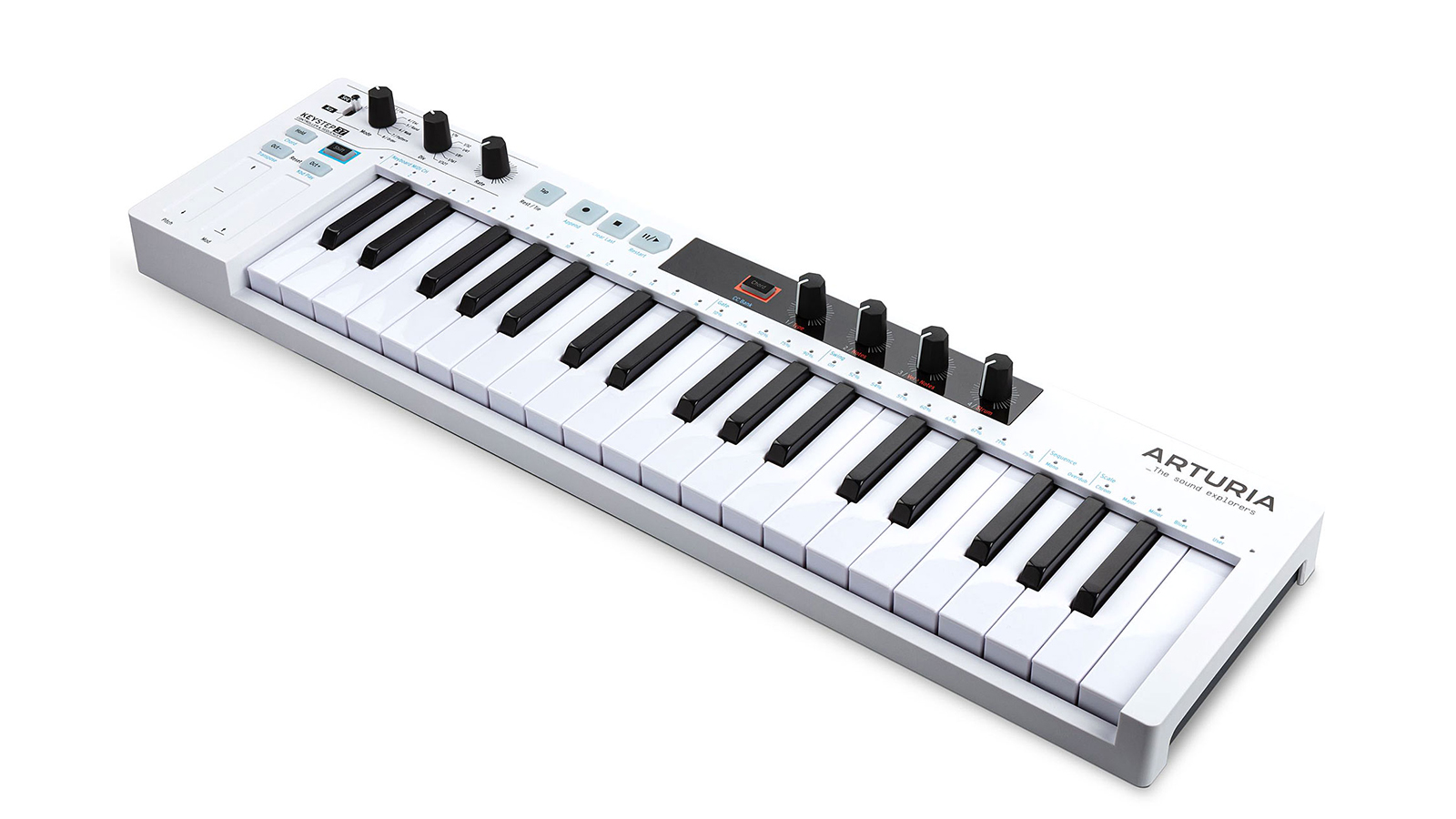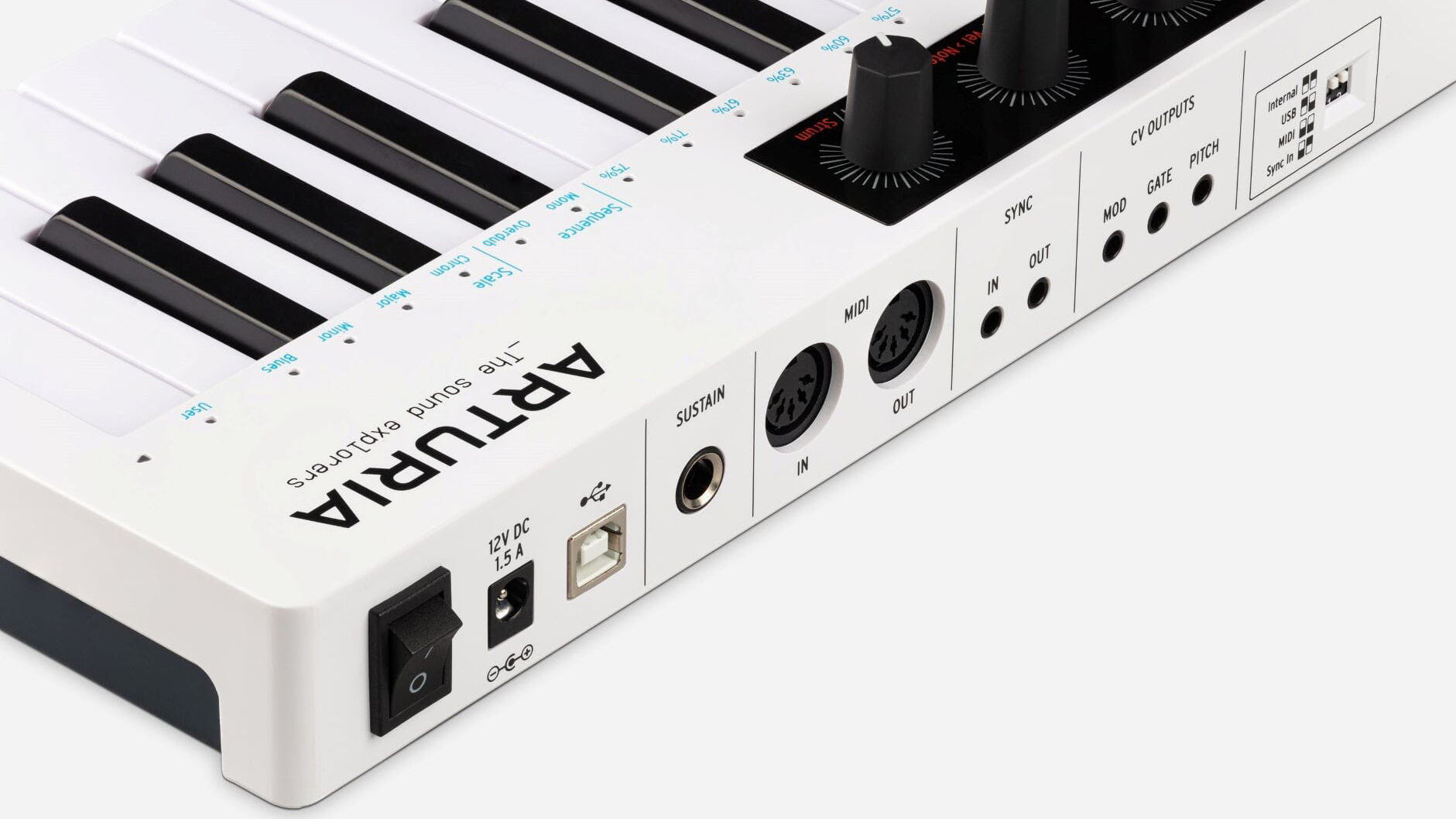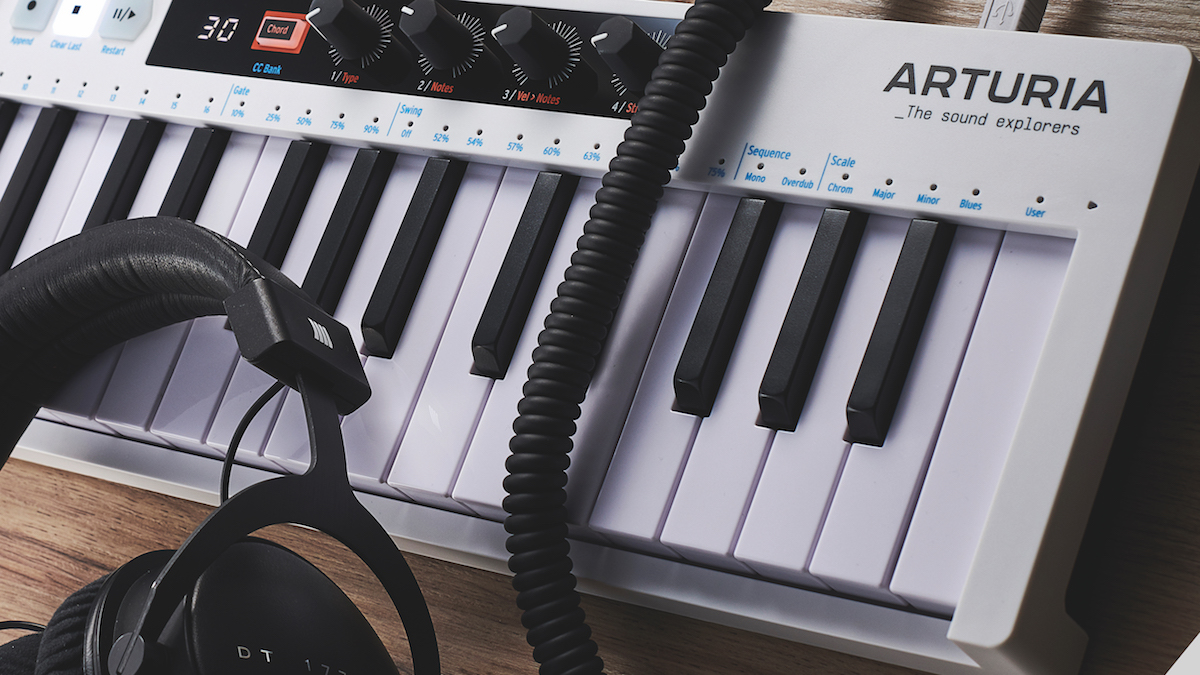MusicRadar Verdict
As the mid-point in the range, the 37 was never going to be a gamechanger, but this is a very decent controller/sequencer.
Pros
- +
Flexible chord mode with the very fun Strum feature
- +
Solid sequencer and arp
- +
Good mix of digital and analogue I/O
Cons
- -
It’s a shame pattern chaining hasn’t been passed down from the KeyStep Pro
MusicRadar's got your back
Arturia KeyStep 37 review: What is it?
Arturia’s BeatStep and KeyStep MIDI keyboard controllers have carved a niche by spanning the realms of analogue and digital control arguably better than any other range. These are controllers for modern musicians who want to keep one foot in the analogue realm; combining the gates and triggers of classic CV sequencers with DAW-ready MIDI control and modern conveniences. In 2020, Arturia added an all-singing, all-dancing keyboard-come-sequencer to the line-up, in the multi-track KeyStep Pro. Now they’re rounding out the key-equipped side of the range with this, the mid-level Arturia KeyStep 37.
Elements of its counterparts are present: the keyboard itself is the same 37-note ‘slim key’ design as the KeyStep Pro, which has a nice feel for its size. As with that larger controller, it features a row of LEDs above the keyboard to display certain settings as well as chord/scale info. As with the original KeyStep, however, the 37 is single-track and is identical in terms of rear panel I/O, offering MIDI in and out, a sustain input and USB, plus analogue gate, CV and mod outputs along with analogue sync in and out.
- Explore more of the best cheap MIDI keyboards
Arturia KeyStep 37 review: Performance & verdict

All of the base KeyStep’s features are carried across. As with that controller, the KeyStep 37 features an eight-mode arp and a polyphonic sequencer with an eight-slot pattern memory. Both controllers feature a chord mode, and eight-note polyphony (compared to the Pro’s 16-notes), but here chords are considerably easier to input thanks to the addition of an LED screen and three dedicated rotaries. Here, there are now three ways to set up chord mode, either by selecting a preset chord using the Type rotary, manually inputting notes using the Notes rotary, or simply pressing the Chord mode button and holding down a chord shape on the keyboard.
Interestingly, the KeyStep 37 adds a couple of chord features absent from the Pro. These are Chord Strum, which will space notes in a chord out to emulate a guitar-like picking, and Velocity to Notes, which allows users to adjust the velocity for individual notes in a chord. There’s also a Scale Quantise feature, inherited from the Keystep Pro.
The Chord mode rotaries also double up as assignable CC controls for manipulating parameters in a DAW or MIDI synth, which is a feature absent from the base-level KeyStep. There’s a four-bank memory for CC assignments, which is handy when jumping between controlling multiple instruments in the studio.
Given its place as a mid-point in the KeyStep range, it’s understandable that there’s nothing exactly game changing here, but it’s still another solid entry into Arturia’s controller range. It has a lot to appeal to users who want a touch more flexibility than the base model without the multi-track complexity of the flagship. As with other ‘Step controllers, digital compatibility works smoothly, and Arturia’s MIDI Control Centre allows for extra customisation and flexibility. A flexible mid-level controller with little not to like.

Arturia KeyStep 37 review: Hands-on demos
Loopop
mylarmelodies
Arturia
Arturia KeyStep 37 review: Specification
- Key feature: 8-pattern sequencer, 8-mode arp, chord and scale modes, customisable CC control; I/O: MIDI in/out, sustain in, gate, CV and mod out, analogue sync in/out, USB
- Contact: Arturia
Want all the hottest music and gear news, reviews, deals, features and more, direct to your inbox? Sign up here.



